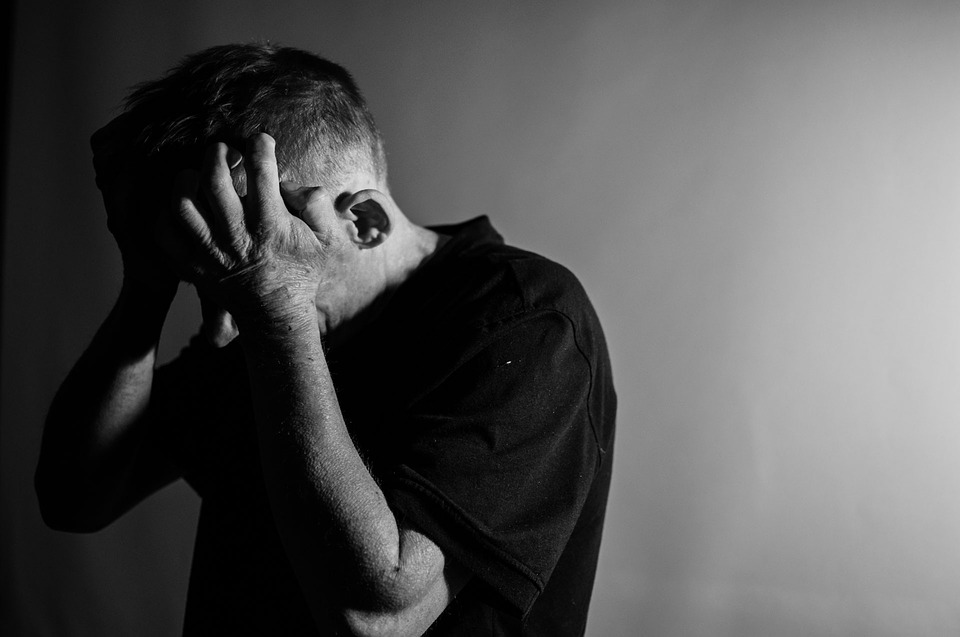It’s important for us all to pay attention to both our physical and emotional state, along with how those around us are doing.
Depression is a mental disorder that is characterized by mood swings, loss of interest, and affects the thinking, behavior, and feelings of the person. The health condition can be a result of a variety of factors including trauma or even chemical imbalance in the brain.
Though depression as a consequence of any event, such as the loss of a loved one, can be managed with therapy and medication, it can be extremely difficult and may take from months to even years for the person to fully get over the problem.
Many times, the patient may even be institutionalized during severe stages of the condition where the person displays violent behavior and indulges in activities such as self-harm along with suicidal thoughts.
According to the statistics, depression is one of the main issues faced by young people today. Depression is commonly followed by other mental issues such as anxiety and should be handled seriously.
What Causes Depression?
Depression can affect any individual from any age group or social background. For many, it can be the result of a significant event in life. However, that is not always true.
A person may have depression due to a variety of reasons including:
- Genetic factors
- Trauma or life events
- Biological or environmental changes
- Drugs, sickness, and hallucinations
What Are The Symptoms of Depression?
The most common symptoms of depression can be hard to notice as many people confuse it with feeling blue. The signs may get more severe as it develops.
Following are the signs and symptoms of depression:
- Feeling unhappy
- Loss of interest in activities and hobbies
- Loss of appetite or weight loss
- Trouble sleeping or sleeping too much
- Lack of strength or extended fatigue
- Feeling valueless or guilty
- Problems concentrating or making decisions
- Suicidal thoughts or feelings
Atypical Depression
This peculiar depression may be tough to diagnose and it often lasts for many years. Some of the common signs include increased appetite and weight gain.
Bipolar Depression
Bipolar depression is characterized by cycling between depressive intervals and manic episodes. During a manic episode, an individual gets can feel extremely empowered and include periods of abnormally high energy. The time between stages varies from each individual.
Postpartum Depression
Postpartum depression happens regularly with women who have just given birth. Onset of symptoms can vary, it can occur as early as three months or as late as a 12 months after delivery.
Psychotic Depression
Psychotic depression is indicated in sufferers who are suffering from psychotic episodes. Some other symptoms may appear alongside the depression, including hallucinations or delusions. The hallucinations can affect any or all the senses. Commonly, the delusions involve emotions guilt or inadequacy.
Many people deal with depression in different ways. Counseling, exercise, a new routine, or even a change in diet can help.
Programs in the workplace such as Employee Assistance Programs (EAP) should also be utilized as a confidential way for employees to confront and cope with issues beyond just the workplace that could be affecting their mental state.
The NARFA Team works hard to put in place programs for our member businesses and their employees’ health. Please contact us to learn more about how our powerful association can help keep your business strong and stable.
Recent Posts
The U.S. Department of Labor Announces Proposed Rule To Protect Indoor, Outdoor Workers From Extreme Heat
The U.S. Department of Labor has proposed a new rule aimed at protecting workers from extreme heat hazards. This initiative seeks to safeguard approximately 36 [...]
Supreme Court Overturns Chevron Deference: What It Means for Workplace Safety and Regulation
The landscape of federal regulation is set for a seismic shift following a recent Supreme Court decision. On June 28, in Loper Bright Enterprises, et [...]
Navigating the Compliance Maze: How NARFA Simplifies Employee Benefits for Automotive and Trade Industries
In today's complex regulatory environment, businesses in the automotive, roads, fuel, and related industries face unprecedented challenges in managing employee benefits. Recent studies show that [...]




